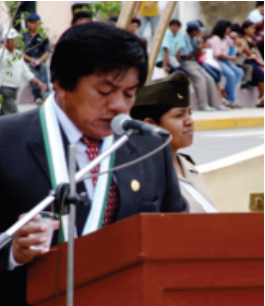
It Takes a Village: Routes to Local-Level Extractives Transparency
In many countries, there is a stark contrast between the wealth emerging from an extractive project and the resources held by the people living closest to the site. When the new industry fails to alleviate poverty and disrupts pre-existing livelihoods, the potential for discontent and conflict is high. Extractive companies are also affected as such tensions can delay projects and there is significant risk for profit loss due to conflict. This happens in the midst of power asymmetries where local actors may be excluded from national-level decisions that impact their daily lives. Local stakeholders’ responses to potential benefits and impacts are often hampered by low capacities and different incentives for reporting parties to share information. Different local policies and systems can make it difficult for affected communities to replicate interventions in other areas. Easy access to relevant information can be a key first step for communities striving towards creating better opportunities for local social and economic development.
The question remains as to which types of information to make public—and in which format—in order for the communities closest to extractive sites to use them. This paper is written for national and subnational policy makers and civil society organizations trying to improve transparency and governance of the extractive sector at the local level.
 The mayor of Sechura, Peru reads the budget to citizens.
The mayor of Sechura, Peru reads the budget to citizens.
It compiles experiences from many resource-rich countries making efforts towards subnational transparency and provides practical suggestions on what information should be disclosed. Section I explains how subnational needs and challenges are different from those at the national level. Section II explores different mechanisms that are used to improve local transparency. Section III details the different types of information needed at the local level along with examples from different countries on their availability and use.
